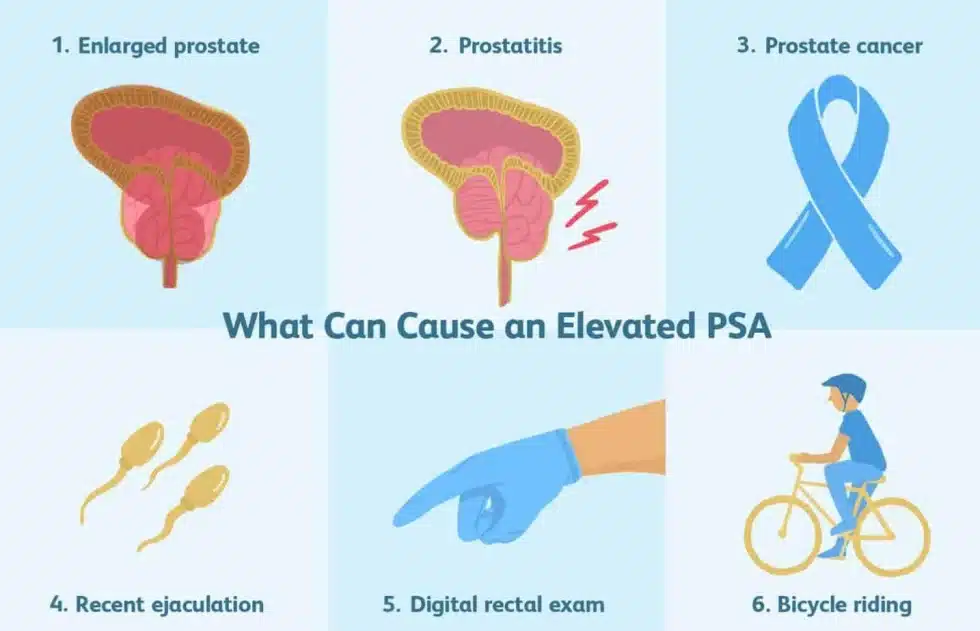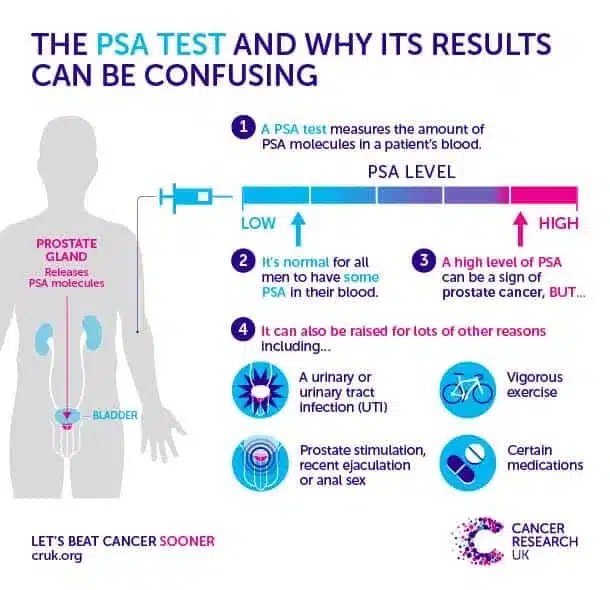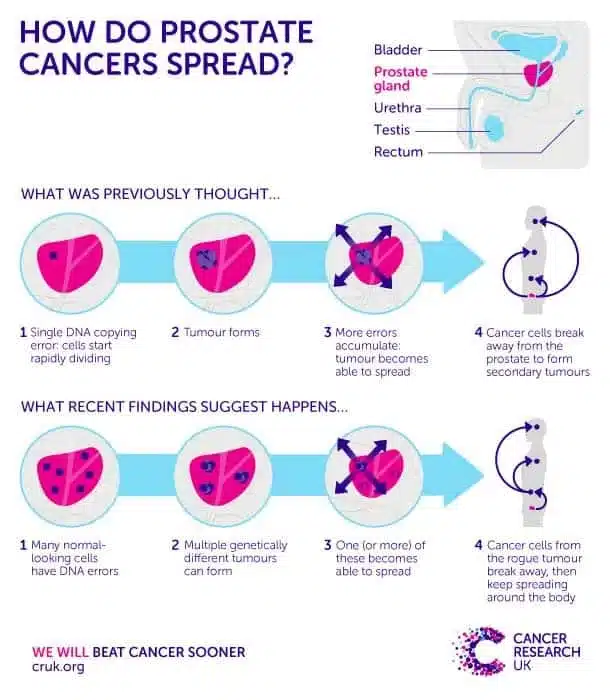How To Treat Elevated PSA Levels

What Does Prostate Specific Antigen (PSA) Really Mean?
Is a measurement of protein produced by the prostate, usually measured in ng/dl. PSA elevates with enlarging prostates, either from inflammation, infection, or testosterone deficiency. Prostates look for more testosterone, thus all aging men have lower levels of testosterone than they did as youths and the prostate enlarges to “suck” up more testosterone to convert to the active form of it. This form is called “dihydrotestosterone.”
If your PSA is elevated then you must also have your percent free PSA measured. The amount free or unbound by protein in the blood serum is the percentage of how much PSA circulates free compared to the total PSA.
- Men with 15-25% of their PSA free (unbound) are considered within normal limits.
- Over 25% PSA free (known as free PSA or fPSA) usually indicates an enlarged prostate.
- Less than 15% free PSA is suspicious for dysplasia or early cancer.
- Less than 7% is highly suspicious of cancer.
If you happen to be in the 15% or lower bracket, we strongly recommend the 4K score prostate test. The 4Kscore combines four prostate-specific biomarkers with clinical information to provide men with an accurate and personalized measure of their risk for aggressive prostate cancer. The 4Kscore can be used prior to biopsy, or after a negative biopsy. As a result, it can predict the likelihood of cancer spreading to other parts of the body in the next 20 years.



